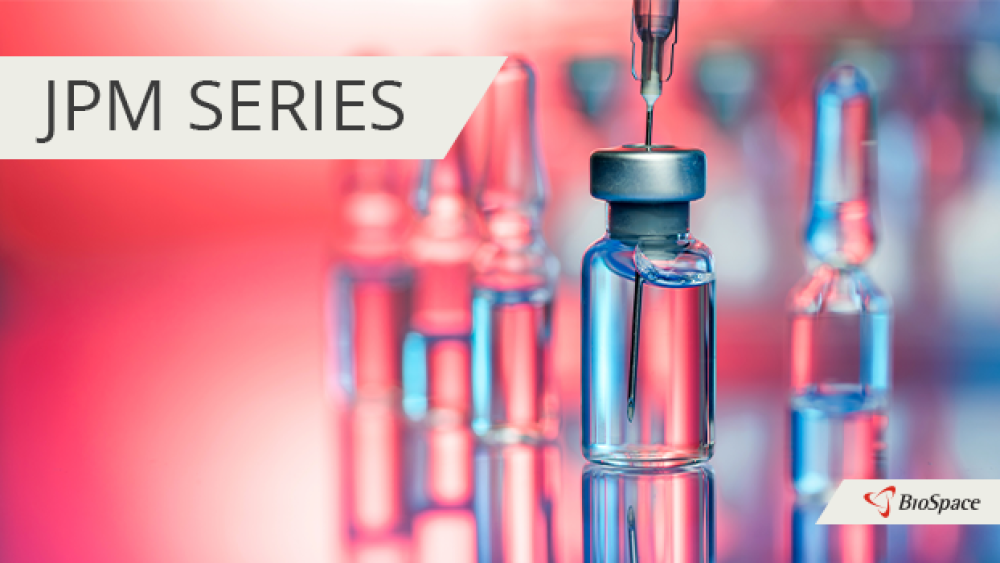Vaccine development is experiencing a resurgence in the wake of the COVID-19 pandemic, with companies developing a variety of approaches.
Vaccine development is experiencing a resurgence in the wake of the COVID-19 pandemic, with companies developing a variety of approaches—including new types of targets, immune boosters and even personalized vaccines—developed for cancers as well as infectious diseases.
Here are some of the highlights from vaccine developers presenting at the Biotech Showcase, January 10–12 and 17–19.
7 Hills Pharma LLC is developing a systemically safe immune stimulant that can activate both cellular and humoral responses, it said, against any antigen. It is poised to launch Phase II studies for geriatric influenza patients and for patients with solid tumors.
Dubbed 7HP349, this integrin activator stabilizes cell-to-cell interaction needed for antigen presentation. Upendra Marathi, Ph.D., co-founder, president and CEO, said, “We envision using a small molecule, orally bioavailable, integrin activator atop existing vaccines to boost responses to flu and COVID-19, and to augment immuno-oncology therapies.
“7HP349 is not a direct agonist,” he pointed out. “It has been shown to be synergistic with immune checkpoint inhibitors and infectious disease vaccines.”
Marathi showed outcomes from a preclinical study conducted at the Mount Sinai Hospital which indicated a significant improvement in neutralizing titer for influenza virus when 7HP349 was added as a combination therapy. A slide reporting data from a study of checkpoint inhibitor effectiveness conducted at MD Anderson Cancer Center showed the addition of this drug nearly tripled 120-day survival (from 27% to 73%).
“(Immuno-oncology) is a very competitive space. There are lots of approaches to convert cold tumors to hot,” Marathi said. “More than 70% of patients are resistant to PD-1 inhibitors. We believe a major mechanism of resistance is due to insufficient priming of tumor antigens. So, if you could activate the antigen-presenting cells driving immunogenicity, you could overcome drug resistance.” Studies suggest 7HP349 can do that by increasing antigen-presenting cell recruitment and activation as well as T cell activation.
AIVITA Biomedical is developing personalized vaccines to prevent COVID-19 infections and to treat cancer, using optimized neoantigen therapy. Notably, in cancer, the vaccine targets all neoantigens, thereby enabling the vaccine to remain effective in the face of mutations.
In a Phase II trial for glioblastoma multiform, treated patients showed a 50% increase in progression-free survival that extended more than 10 months post-treatment. The vaccine also elicited an 80% increase in immune response and a 65% reduction in tumor markers among treated patients.
As Hans Keirstead, Ph.D., chairman and CEO, elaborated, “Only 1% to 3% of every tumor type is a tumor-initiating cell.” Unlike other therapeutics that tried using broad sections of the tumor, Aivita uses only tumor-initiating cells as the antigen source. “We get a small piece of the resected tumor and extract and purify the tumor-initiating cells. We load those onto a tried-and-true exciter of the immune response—the dendritic cells.”
A similar approach is used to create its personalized COVID-19 vaccine, which is made from dendritic cells extracted from a blood draw. Rather than manufacturing a vaccine, however, Aivita developed a COVID-19 vaccine enabling kit. It is intended for emerging markets to help them access vaccines in-country and at a cost they can afford.
The chief benefit, Keirstead explained, is that “this vaccine is made at the point of care.” Consequently, there are no distribution hurdles, and the current 4°refrigeration requirement will be eliminated soon in favor of room temperature storage. From blood draw to vaccination takes one week, and a minimal skill set is needed—“just enough to operate a syringe,” he said.
Phase II studies showed 96% effectiveness against COVID-19’s Delta variant.
A Phase III study of this antigen-loaded dendritic cell vaccine is about to begin in Indonesia, funded by the Indonesian Ministry of Health. Keirstead said he plans to assemble a kit-manufacturing company in Southeast Asia, “probably in Singapore.”
BioTherapeutic Vaccines (an Integrated Biotherapeutics company) is developing a toxoid-based vaccine against Staphylococcus aureus (S. aureus), including methicillin-resistant S. aureus (MRSA).
“MRSA cases jumped 34% in the U.S. last year. It can hit everyone. It is exacerbated by COVID-19, and the choice of antibiotics is increasingly limited. Our only hope is a vaccine, but there is no approved vaccine yet,” M. Javad Aman, Ph.D., president and CSO, said.
“Targeting surface antigen has worked for many other bacteria, but not for S. Aureus,” he noted. Therefore, his company is developing a broad, toxoid-based vaccine that has neutralized each of the 15 toxins tested to date while protecting the immune cells and T cells and thus allowing a protective T cell immune response.
The lead program focuses on skin and soft tissue infections. Those infections have an average recurrence rate of about 25%, which is a major problem in some inflammatory diseases, Aman said. “The FDA confirmed this is an unmet medical need.” That program is in preclinical development, and the company is seeking Series A funding, which Aman said will enable it to “complete the Phase II concept.”
Although competing vaccines are being developed, IBT-V02 is the only one that does not include any surface antigen. This is expected to enhance clinical efficacy. Early data shows “excellent safety and immunogenicity,” Aman said. Animal studies show broadly neutralizing response and a T cell memory response known to protect against S. aureus and against recurrent infections and necrotizing pneumonia (a deadly condition that occurs in intensive care units).
The company anticipates applications will expand from skin and soft tissue infections to include atopic dermatitis and elective surgeries.






